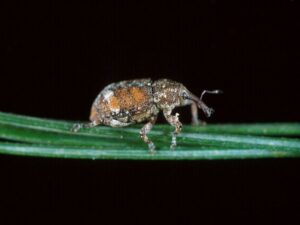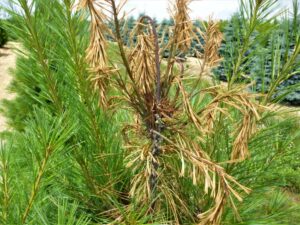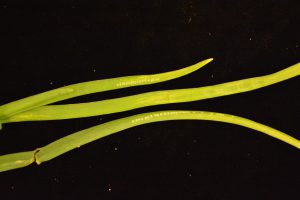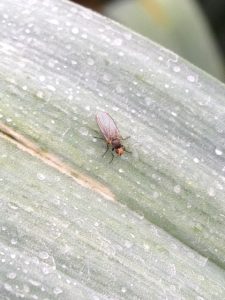Many arborists & landscapers often find it difficult to prevent white pine weevil pests (Pissodes strobi), because they are typically applying fertilizer & dormant oil treatments during the control window. In the state of NJ, the control window against feeding white pine weevil adults occurs in March & April. Adults over-winter in the duff beneath trees. The WPW adults will often crawl or sometimes fly to the top terminal leaders of pine, spruce, or Douglas-fir trees. Eastern white pine & Norway spruce species are the most severely attacked & the death of the terminal leaders of these trees will often occur.
Treatment timing is critical with this pest and controlling the adult female before egg laying is necessary. Apply preventative sprays (e.g., pyrethroids) only to the terminal leaders during this time. Before mating & egg laying, adults will feed by chewing holes within the central leader & cause a characteristic pitch flow that becomes white in color when dry. Then females will lay eggs in new cut-out holes within the top 12 inches of the leader just below the terminal bud. This blog will describe with the help of photographs the 7-stage lifecycle of this native weevil borer. Control & management options will also be provided.

White pine weevil adults are about 1/4+ inch long & have a long snout with two white spots on back of wing covers. Adults feed at terminal leaders during March & April. Most eggs will then be laid during April & May. (Photo Credit: Michigan State University)

Severe white pine weevil infestations to terminal leaders can destroy two or more years worth of growth to pine, spruce, & Douglas-fir trees. (Photo Credit: Steven K. Rettke, Rutgers Coop. Ext.)


